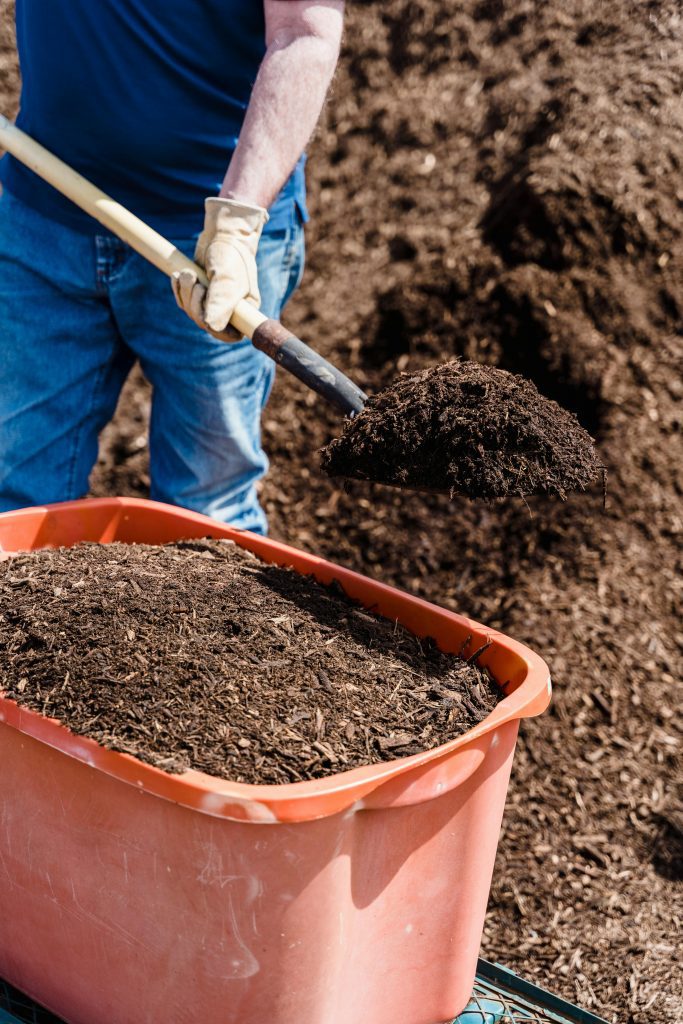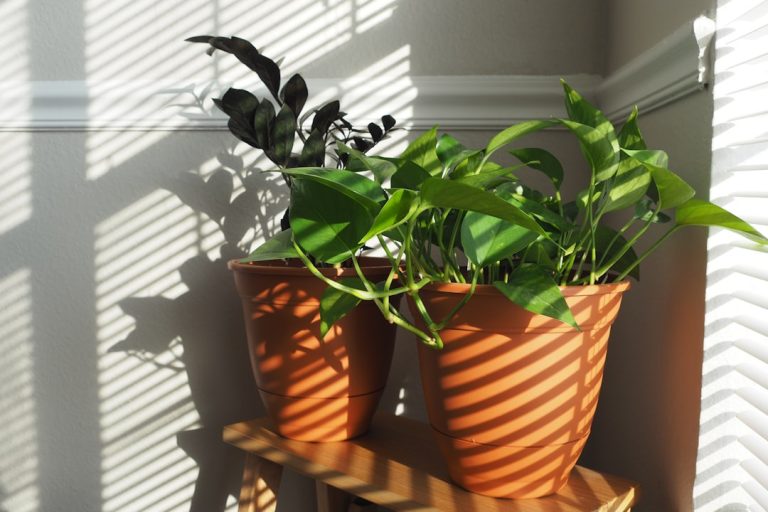Composting is a natural process that transforms organic waste into nutrient-rich soil. It is a simple and effective way to reduce waste and benefit the environment. By composting, we can divert organic materials from landfills, where they would otherwise produce harmful greenhouse gases. Instead, these materials can be turned into a valuable resource that improves soil health and reduces the need for chemical fertilizers. Composting is not only beneficial for our gardens but also for the planet.
Key Takeaways
- Composting is a natural process that turns organic waste into nutrient-rich soil.
- Composting is an eco-friendly solution that reduces waste and greenhouse gas emissions.
- There are different types of composting methods, from backyard bins to worm farms.
- Kitchen scraps and yard waste can be composted, but certain items should be avoided.
- Composting dos and don’ts include maintaining the right balance of carbon and nitrogen, and avoiding meat and dairy products.
How Composting Works: A Breakdown of the Process
Composting is a process that involves the decomposition of organic matter by microorganisms. It begins with the collection of organic waste, such as fruit and vegetable scraps, coffee grounds, and yard trimmings. These materials are then placed in a compost bin or pile, where they are broken down over time.
The decomposition process is facilitated by microorganisms, such as bacteria and fungi, which break down the organic matter into simpler compounds. These microorganisms require oxygen, moisture, and the right balance of carbon and nitrogen to thrive. Carbon-rich materials, also known as “browns,” provide energy for the microorganisms, while nitrogen-rich materials, or “greens,” provide protein for their growth.
As the microorganisms break down the organic matter, heat is generated, which speeds up the decomposition process. Over time, the organic waste is transformed into dark, crumbly compost that is rich in nutrients and beneficial for plants.
The Environmental Benefits of Composting: An Eco-Friendly Solution
Composting offers numerous environmental benefits that make it an eco-friendly solution for waste management. One of the key benefits is its ability to reduce greenhouse gas emissions. When organic waste is sent to landfills, it decomposes anaerobically (without oxygen), producing methane gas, which is a potent greenhouse gas that contributes to climate change. By composting organic waste, we can prevent the release of methane and reduce our carbon footprint.
Composting also helps conserve resources. By using compost as a natural fertilizer, we can reduce the need for chemical fertilizers, which require energy-intensive manufacturing processes and contribute to water pollution. Compost improves soil structure, retains moisture, and provides essential nutrients for plants, making it a sustainable alternative to synthetic fertilizers.
Furthermore, composting reduces the amount of waste sent to landfills. Organic waste makes up a significant portion of municipal solid waste, and by composting it, we can divert this waste from landfills and extend their lifespan. This not only reduces the environmental impact of landfills but also saves valuable landfill space.
Types of Composting: From Backyard Bins to Worm Farms
| Type of Composting | Description | Advantages | Disadvantages |
|---|---|---|---|
| Backyard Bins | Composting in a bin in your backyard using organic waste such as food scraps and yard waste. | Reduces waste sent to landfill, produces nutrient-rich soil, saves money on fertilizer. | May attract pests, requires maintenance, may not be suitable for large amounts of waste. |
| Trench Composting | Burying organic waste in a trench in your garden. | Improves soil quality, reduces waste sent to landfill, easy to do. | May attract pests, takes time for waste to decompose, may not be suitable for all soil types. |
| Worm Farms | Using worms to break down organic waste in a container. | Produces nutrient-rich soil and liquid fertilizer, reduces waste sent to landfill, easy to do. | Requires maintenance, may attract pests, may not be suitable for large amounts of waste. |
| Bokashi Composting | Using a special mix of microorganisms to ferment organic waste in an airtight container. | Produces nutrient-rich soil, reduces waste sent to landfill, can compost meat and dairy products. | Requires maintenance, may attract pests, and may not be suitable for large amounts of waste. |
There are several different methods of composting, each with its own advantages and disadvantages. The most common method is backyard composting, which involves using a compost bin or pile in your yard. This method is suitable for those with a larger outdoor space and allows for the decomposition of a wide range of organic materials.
Another popular method is compost tumblers, which are enclosed containers that can be rotated to mix the compost. Tumblers are ideal for those with limited space or who want a more contained and manageable composting system. They also tend to produce compost more quickly than traditional bins or piles.
Worm farms, or vermicomposting, is another option for composting. This method involves using worms to break down organic waste into nutrient-rich castings. Worm farms are compact and can be kept indoors or outdoors, making them suitable for apartment dwellers or those with limited outdoor space.
Each method has its pros and cons. Backyard bins offer more flexibility in terms of the amount and types of materials that can be composted but require more space and maintenance. Tumblers are convenient and produce compost faster but may have limitations on the types of materials that can be composted. Worm farms are compact and suitable for small spaces but may require more attention and care.
What to Compost: A Guide to Kitchen Scraps and Yard Waste
Composting is a versatile process that can handle a wide range of organic materials. In general, most fruit and vegetable scraps, coffee grounds, tea leaves, eggshells, yard trimmings, and leaves can be composted. These materials provide the necessary carbon and nitrogen for the microorganisms to thrive and break down the organic matter.
However, there are some items that should not be composted. Meat, dairy products, oils, and fats should be avoided as they can attract pests and create odours. Similarly, pet waste, diseased plants, and weeds with seeds should not be composted as they may introduce pathogens or weed seeds into the compost.
It is also important to avoid composting materials that have been treated with pesticides or herbicides, as these chemicals can persist in the compost and potentially harm plants when used as fertilizer.
Composting Dos and Don’ts: Tips for Success

To ensure successful composting, there are a few key tips to keep in mind. First, it is important to maintain the right balance of carbon and nitrogen in your compost pile. A ratio of roughly 3 parts carbon to 1 part nitrogen is ideal. Carbon-rich materials include dry leaves, straw, and shredded paper, while nitrogen-rich materials include fruit and vegetable scraps, grass clippings, and coffee grounds.
It is also important to keep your compost moist but not waterlogged. The microorganisms responsible for decomposition require moisture to thrive. If your compost pile becomes too dry, it may slow down or stop the decomposition process. On the other hand, if it becomes too wet, it may become anaerobic and produce unpleasant odours.
Regularly turning your compost pile can help aerate it and speed up the decomposition process. This can be done with a pitchfork or a compost-turning tool. Turning the pile also helps distribute moisture and heat more evenly, ensuring that all parts of the compost are decomposing properly.
Avoid adding too much of one type of material to your compost pile. A diverse mix of materials will provide a balanced diet for the microorganisms and promote faster decomposition. Adding too much of one type of material, such as grass clippings, can create a dense, compacted pile that may become anaerobic and produce odors.
Troubleshooting Composting Issues: Common Problems and Solutions
While composting is a relatively simple process, there are some common issues that can arise. One common problem is a foul odor coming from the compost pile. This is often a sign that the pile is too wet or has too much nitrogen-rich material. To solve this issue, add more carbon-rich materials, such as dry leaves or shredded paper, and turn the pile to improve aeration.
Another issue that may arise is slow decomposition. If your compost pile is not breaking down as quickly as expected, it may be due to a lack of moisture or insufficient oxygen. Ensure that your compost pile is moist but not waterlogged, and turn it regularly to provide oxygen to the microorganisms.
Pests can also be a problem in compost piles, especially if meat or dairy products are added. To prevent pests, avoid adding these materials and ensure that your compost pile is well-covered and secure.
Using Compost in Your Garden: Boosting Soil Health and Reducing Waste
One of the greatest benefits of composting is its ability to improve soil health and reduce the need for chemical fertilizers in the garden. Compost adds organic matter to the soil, improving its structure and water-holding capacity. It also provides essential nutrients for plants, such as nitrogen, phosphorus, and potassium.
To use compost in your garden, you can mix it into the soil before planting or use it as a top dressing around existing plants. When mixing compost into the soil, aim for a ratio of about 1 part compost to 3 parts soil. This will ensure that the compost is evenly distributed and provides nutrients to the plants.
Using compost as a top dressing involves spreading a layer of compost around the base of plants. This helps retain moisture, suppress weeds, and slowly release nutrients over time. Be sure to leave a gap between the compost and the stem or trunk of the plant to prevent rot or disease.
Composting in Urban Settings: Small-Scale Solutions for Apartment Dwellers
Composting is not limited to those with large outdoor spaces. There are several small-scale composting solutions available for apartment dwellers or those with limited outdoor space.
Vermicomposting, or worm farming, is a popular option for urban composting. It involves using worms to break down organic waste into nutrient-rich castings. Worm farms are compact and can be kept indoors or on balconies, making them ideal for apartment dwellers. They require minimal maintenance and produce high-quality compost.
Another option is using a bokashi bin, which is a system that uses fermentation to break down organic waste. Bokashi bins are compact and can be kept indoors. They use a special mix of microorganisms to ferment the waste, which can then be buried in the soil or added to an outdoor compost pile.
The Magic of Composting and Its Role in Sustainable Living
Composting is a simple yet powerful way to reduce waste and benefit the environment. By diverting organic waste from landfills and turning it into nutrient-rich soil, we can reduce greenhouse gas emissions, conserve resources, and improve soil health. Composting offers numerous benefits for both our gardens and the planet.
Whether you have a large backyard or live in an apartment, there are composting solutions available for everyone. From traditional backyard bins to worm farms and bokashi bins, there is a method that suits your needs and space constraints.
By composting, we can make a positive impact on the environment and contribute to sustainable living. So why not give it a try? Start composting today and join the movement towards a greener, more sustainable future.
If you’re interested in learning more about the composting process and its importance in preserving our precious planet, check out this informative article on Eco Friendly Home and Garden. It provides a comprehensive guide on how to compost effectively and highlights the numerous benefits of composting for the environment. Additionally, if you’re passionate about building a greener future and want to explore environmentally friendly homes, this article on Eco Friendly Home and Garden discusses the rise of sustainable housing options. Don’t miss out on these valuable resources for environmental stewardship!
FAQs
What is composting?
Composting is a natural process of breaking down organic materials, such as food scraps, yard waste, and other biodegradable materials, into a nutrient-rich soil amendment.
What are the benefits of composting?
Composting helps reduce waste, improves soil health, and reduces the need for chemical fertilizers. It also helps reduce greenhouse gas emissions by diverting organic waste from landfills.
What materials can be composted?
Most organic materials can be composted, including fruit and vegetable scraps, yard waste, leaves, grass clippings, coffee grounds, and eggshells. However, meat, dairy, and oily foods should be avoided as they can attract pests and slow down the composting process.
How long does it take to compost?
The time it takes to compost depends on several factors, including the size of the compost pile, the materials being composted, and the environmental conditions. Generally, it takes between 2-6 months for compost to be ready for use.
What are the different methods of composting?
There are several methods of composting, including traditional composting, vermicomposting (using worms), and aerobic composting (using oxygen). Each method has its own advantages and disadvantages.
What are the key components of a compost pile?
A compost pile should have a balance of carbon-rich materials (such as leaves and twigs) and nitrogen-rich materials (such as food scraps and grass clippings). It should also be kept moist and aerated to promote the growth of beneficial microorganisms.


